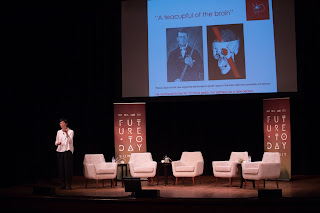Neuroethics and the Third Offset Strategy

By Jonathan D. Moreno Jonathan D. Moreno is the David and Lyn Silfen University Professor at the University of Pennsylvania where he is a Penn Integrates Knowledge (PIK) professor. At Penn he is also Professor of Medical Ethics and Health Policy, of History and Sociology of Science, and of Philosophy. Moreno is an elected member of the National Academy of Medicine and is the U.S. member of the UNESCO International Bioethics Committee. A Senior Fellow at the Center for American Progress in Washington, D.C., Moreno has served as an adviser to many governmental and non-governmental organizations, including three presidential commissions, the Department of Defense, the Department of Homeland Security, the Department of Health and Human Services, the Centers for Disease Control, the Federal Bureau of Investigation, the Howard Hughes Medical Institute, and the Bill and Melinda Gates Foundation. Moreno has written several books , including Impromptu Man: J.L. Moreno and the Origins of Psyc...
